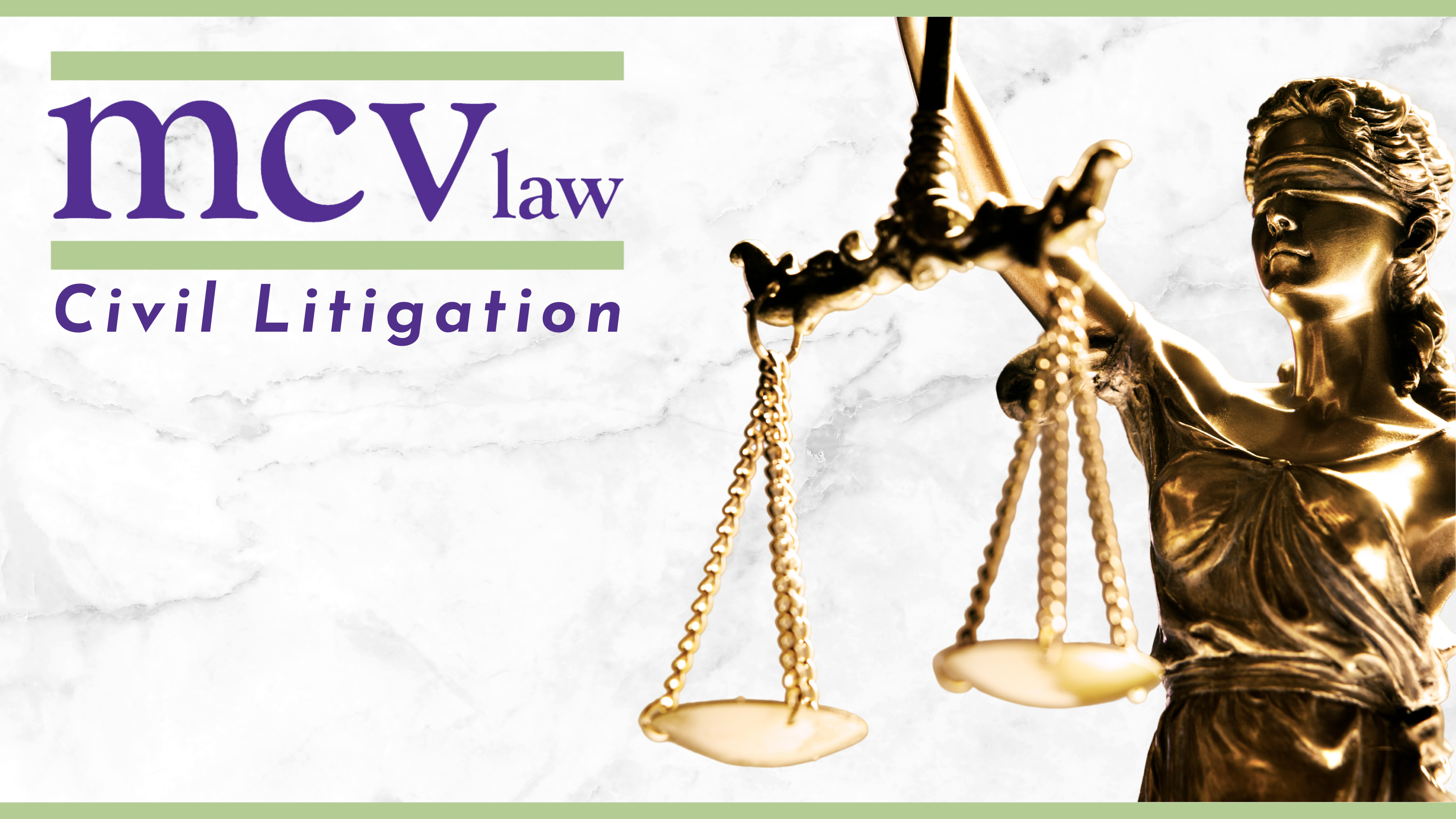
DNA of a Civil Litigation
Many people come to lawyers very quickly after they feel they have been wronged. Although this is VERY important to do as there are a number of time limits, procedures and processes that need to occur very shortly after you and/or your property is injured, it is important to ask yourself a few questions before calling MCV Law so we can help you more effectively. Over the next few months, I will be walking you through the steps and questions that are important to know and to think about as you wish to pursue a civil litigation matter.
STEP 1: Liability
The first and most important issue to discuss is also many times the most difficult to determine; liability, or in other words, WHO IS AT FAULT?
Why can this most straightforward question be one of the most difficult?
(1) Is it a natural person or company?
This becomes difficult because you might interact with the same person every time you need something but they may only be acting on behalf of their employer. “John Doe” may just be the face of the company, so it would be easy to claim he is the liable party, when instead it may in fact be the company, even if John himself did something wrong. Think of it this way: when you paid him, did you write his name on the check or a company's name? If it was the company, John Doe is unlikely to be the proper defendant.
This distinction is not the easiest to see, which is where MCV Law comes in, but knowing there is a difference allows for a more productive initial discussion.
(2) What acts caused the damage?
There has to be an event in which your property was damaged and knowing exactly what event caused the damage allows us here at MCV to narrow down the culpable parties. In some circumstances, there may be multiple events that lead to your damage, and we will go after all those involved, but most times there is one event at the crux of the damage. An example of a direct cause is; in the cold Syracuse winter, if your tenants had turned on the heat during a 0-degree day, the pipes in your rental property would not have frozen and become damaged. In this situation it is easy to see the correlation of heat to frozen water pipes, therefore liability can be seen directly, but in other instances, such as what caused a car to fail (is it mechanical, was it the dealership, was it the mechanic who serviced it?) liability may be a little more difficult to determine. Identifying the proper event at the root of the damage will allow MCV to see exactly who did you wrong, which is key in advocating for your interests.
(3) Did I have any involvement in the damage? (Don’t worry, it doesn’t necessarily end your case.)
The next issue I am going to address is whether or not you may have some responsibility, and although this is not an issue that many want to address with themselves or their attorneys, here at MCV we treat each case with a realistic and pragmatic approach. We understand that people are human and mistakes are made, but that shouldn’t stop you from pursuing the compensation you deserve. Responsibility for property damage is oftentimes shared, and even if you hold some of that responsibility, that doesn't mean that you should be hit with the entire financial burden of repairs, replacement, etc. Don’t let a little doubt about something you may have done stop you from speaking to us. Now, I will say that there are times that your actions can prevent recovery, but in New York State, depending on the degree of fault you may still recover at least part of your losses. Courts are allowed to proportion the damage based on the percentage of fault, in other words, if you were 10% at fault, you may be able to recover 90% of your damages.
In conclusion, it is important to think about who wronged you, and how they wronged you. Give us a call or come in and see us, because it is our job to look at your case and find ways that we can help. Come in with an open mind. Knowing why we will ask certain questions during our evaluation will put you at ease, and allow us to have a more fruitful and honest discussion about your case.
Next month I will be looking at what kind of damages you have suffered (monetary, property, physical or emotional).



